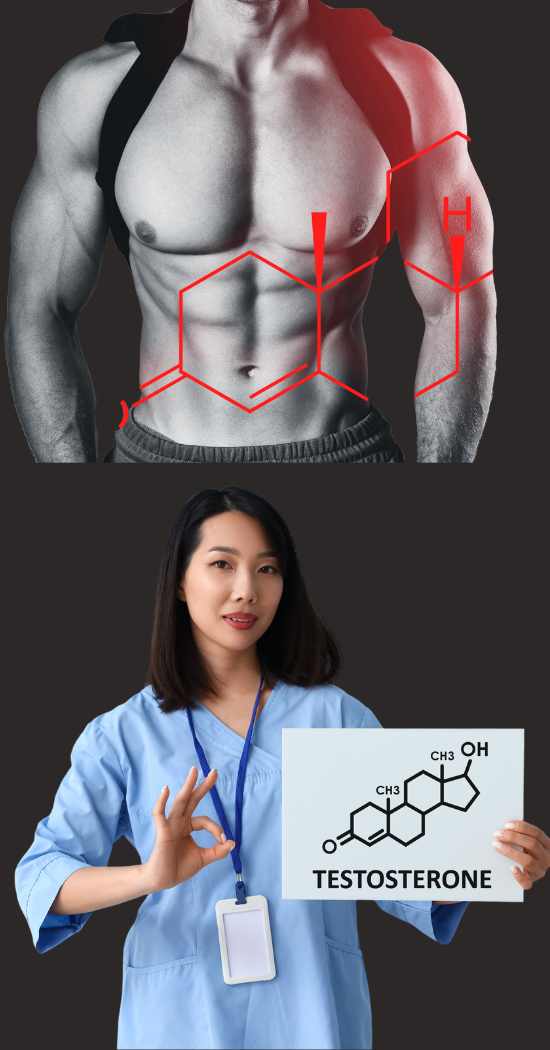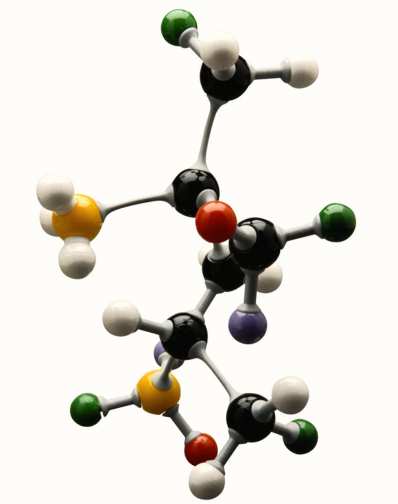Vital T Performance
FAQs

FITNESS
FAQs
Frequently Asked Questions
What is testosterone and how does it affect the body?
Testosterone is a crucial sex hormone primarily produced in the testes for males and in the ovaries for females. While males generally have higher levels of testosterone, females also produce it naturally. The hormone’s production is regulated by the hypothalamus and pituitary glands, playing a key role in sexual development, muscle growth, bone density, fat distribution, mood, and energy levels.
Testosterone is released into the bloodstream, where it impacts various parts of the body by binding to androgen receptors on cells. Once it connects with a cell’s androgen receptor—whether it’s a neuron, bone, muscle, or fat cell—the hormone triggers changes within the cell over a few days to achieve the desired effect. Testosterone levels can fluctuate throughout the day and differ from one person to another.
How can I tell if I may have low testosterone and what is considered normal?
Testosterone levels are typically assessed through a blood test. Normal total testosterone levels usually range between 300 ng/dL and 1000 ng/dL.
What causes low testosterone?
Low testosterone can arise from several underlying issues, broadly classified into two main categories: primary deficiency and secondary causes.
Primary Deficiency involves problems directly with the testes. These include:
- Chromosomal abnormalities
- Undescended testis
- Previous mumps infection
- Cancer treatments
- Trauma or injury to the testicles
Secondary Causes originate from issues outside the testes that affect hormone production. These include:
- Disorders of the hypothalamus or pituitary gland
- Certain medications
- Other concurrent illnesses
- Inflammatory diseases
Understanding the root cause is essential for effective treatment and management of low testosterone levels.
Does aging cause low testosterone?
Many studies indicate that testosterone levels generally decrease with age in men, although the precise mechanisms behind this decline are not fully understood. If a patient is diagnosed with hypogonadism, or low testosterone, it’s crucial to investigate and exclude other potential medical causes, such as underlying health conditions. The FDA notes that the benefits and safety of testosterone replacement therapy (TRT) for treating low testosterone symptoms attributed solely to aging have not yet been definitively established.
What are some of the negative health effects of low T and some benefits of TRT?
When testosterone levels fall below normal, the brain usually signals the testes to boost production. However, disruptions in the body’s physiology can affect this natural process. Recent research has linked low testosterone to a range of health issues, including cardiovascular disease, increased mortality, anemia, diabetes, and depression. Furthermore, studies suggest that testosterone replacement therapy can mitigate or reverse many of these risks.
Clinical trials have demonstrated that testosterone therapy can help reduce body fat, manage diabetes, protect against atherosclerosis, and enhance bone density. Restoring testosterone to normal levels may also lower the risk of coronary artery disease. Patients undergoing therapy might experience improvements in cognitive function, mood, anxiety, and even protection against Alzheimer’s disease.
It is essential to remember that individual responses to testosterone replacement therapy can vary, and results are not guaranteed.
How is testosterone administered?
Patches and gels enable testosterone absorption through the skin but can result in inconsistent absorption rates and may be less precise in reaching target levels. Additionally, these methods can be inconvenient and require special precautions around children and others. Subcutaneous implants involve a minor surgical procedure to insert pellets under the skin, but adjusting dosages can be challenging. Injections, while requiring more frequent administration, offer precise dosage adjustments to effectively achieve desired testosterone levels.
I’ve heard that testosterone therapy may not be safe and is mainly used by athletes.
Are there other safety concerns associated with testosterone therapy?
Testosterone therapy has been linked to an increase in red blood cell count, which can thicken the blood and elevate the risk of clots. This, in turn, may lead to complications such as pulmonary embolisms, heart attacks, and strokes. At Vital T Performanc, we carefully monitor red blood cell levels and take proactive steps to maintain them within a safe range. For more details on the relationship between testosterone levels and cardiovascular risk, we encourage you to explore our blog.
Additionally, we recommend that all patients review the latest FDA findings, which suggest a potential increase in cardiovascular risk associated with testosterone use.
Do elevated testosterone levels cause prostate cancer?
What kinds of testosterone replacement therapies does Vital T Performanc offer?
At Vital T Performance, we specialize in providing testosterone injections as our primary treatment option, due to their superior safety and effectiveness compared to other methods. For patients experiencing significant fatigue from B12 deficiency, we also offer B12 injections to help address this issue. Additionally, after the initial month of testosterone therapy, we may incorporate HCG (human chorionic gonadotropin) to stimulate the testes and prevent testicular atrophy. For more information, please feel free to call or reach out to us!
What happens if I stop taking testosterone?
After discontinuing testosterone therapy, your testosterone levels may return to their pre-treatment state, or potentially even drop below those levels. Similar to other medications, the body metabolizes testosterone, necessitating ongoing doses. However, some benefits of testosterone therapy, like improved bone density and increased lean body mass, can persist for weeks or even months.
Will my insurance cover testosterone replacement therapy?
Many insurance carriers cover testosterone replacement therapy and associated laboratory testing, but it’s important to review your current plan to confirm coverage. Please note that Vital T Performance does not accept Medicare or Medicaid at this time. For patients who are paying out-of-pocket, we provide flexible cash payment plans.
Low Testosterone
Low testosterone, also known as hypogonadism, occurs when the body’s natural hormone production falls below normal levels. Many men begin experiencing a decline in testosterone as early as age 30. At Vital T Performance, we’re here to help you restore your energy and vitality.
Medical Weight Loss
Be the BEST version of YOU with medically supervised weight loss at Vital T Performance!
At Vital T Performance, our mission is to empower you to achieve a healthier and more fulfilling life. We collaborate with you to create a personalized weight loss plan tailored to your unique lifestyle and goals. Our compassionate and skilled team is dedicated to supporting you throughout your journey towards lasting, healthy weight loss.
our advantages
Warning Signs of Low T
If you're noticing changes in your health or well-being, it’s important not to overlook the possibility of Low Testosterone. These symptoms are often mistaken for other issues. Visit Vital T Performance today to have your levels checked if you're experiencing any of the following signs:
Possible symptoms of Low T include, but are not limited to:

- Low sex drive
- Fatigue
- Low energy
- Depressed mood

- Hair loss
- Weight gain
- Poor concentration
- Reduced muscle mass

